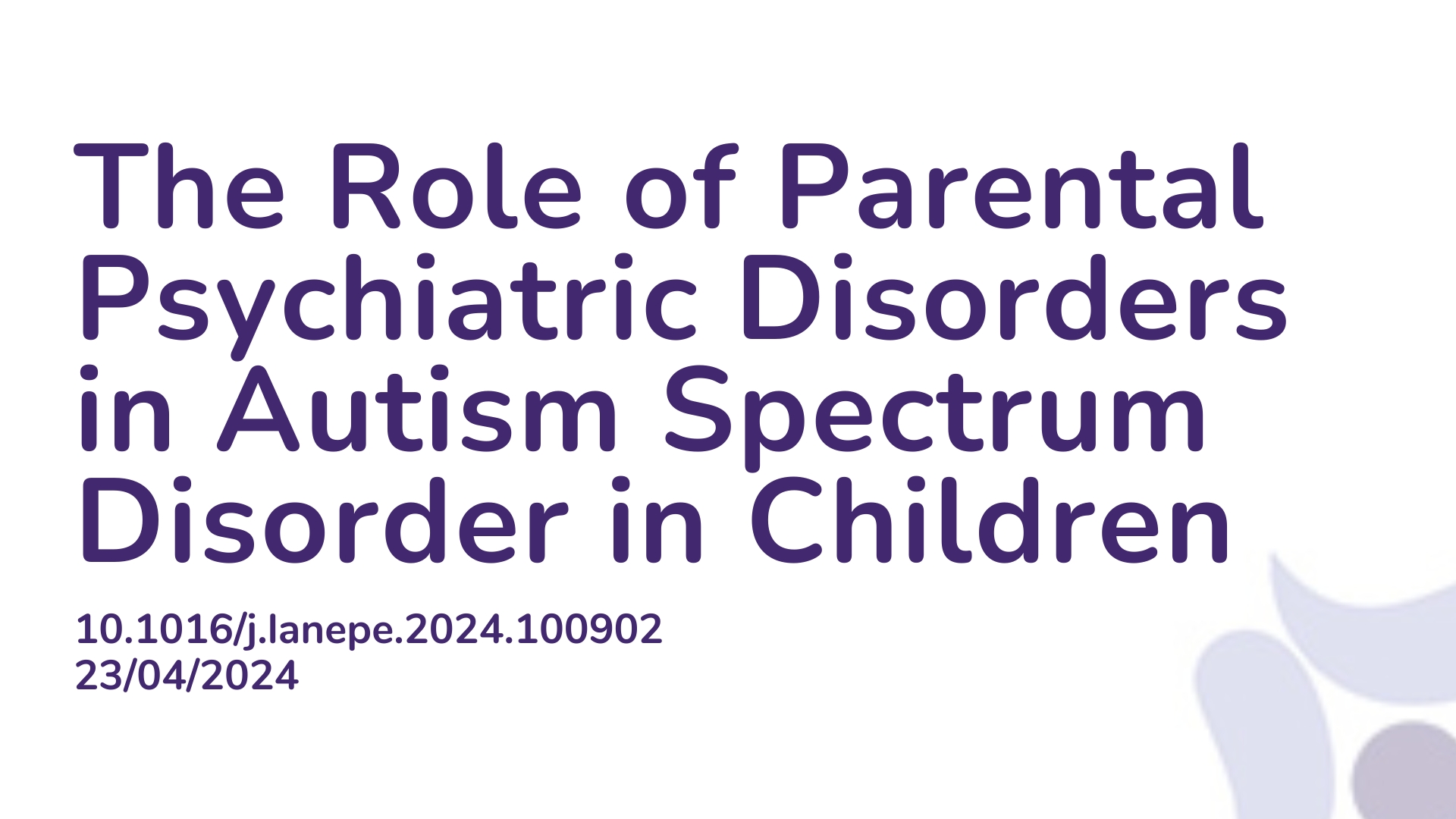Summary:
Autism spectrum disorder (ASD) is a complex neurodevelopmental condition influenced by both genetics and environmental factors. While studies have indicated a higher risk of ASD in children of parents with psychiatric disorders, population-based studies examining the impact of maternal and paternal psychiatric conditions are scarce. The studies that do exist also often have small sample sizes and yield inconsistent results. To address these gaps, this paper presents a thorough study using nationwide registers from Sweden and Finland that investigated the association between parental psychiatric disorders and offspring ASD. The paper considered factors such as parental gender, comorbid psychiatric conditions, and specific types of psychiatric disorders. Among 2,505,842 children, 33,612 received an ASD diagnosis, with 20% having a parent with psychiatric disorders. The risk of ASD was heightened across all psychiatric disorders in fathers, mothers, or both parents, compared to those with unaffected parents. The presence of multiple psychiatric disorders in parents further elevated the risk. In conclusion, the highest risk of offspring ASD was associated with psychiatric disorders in both parents, followed by mothers and then fathers. Risk increased with the number of co-occurring disorders. All parental psychiatric disorders were linked to an increased risk of ASD.
Abstract:
Background: Roughly more than one in six adults worldwide suffer from psychiatric conditions. Sporadic studies have associated parental psychiatric disorders with autism spectrum disorder in offspring. Comprehensively examining the association between parental psychiatric disorders and offspring autism spectrum disorder is needed to guide health policies, and to inform etiologic studies. Methods: We included all children born in Sweden and Finland 1997–2016.: Diagnoses were clinically ascertained from National Registers through 2017. We calculated adjusted hazard ratios (aHRs) and 95% confidence intervals (CIs) for autism spectrum disorder in offspring of fathers and mothers with psychiatric disorders, in both parents jointly and across co-occurring conditions. Findings: Among 2,505,842 children, 33,612 were diagnosed with autism spectrum disorder, of which 20% had a parent with psychiatric disorders. The risk of autism spectrum disorder was increased across all psychiatric disorders in fathers (Sweden: aHR = 2.02, 95% CI = 1.92–2.12; Finland: aHR = 1.63, 95% CI = 1.50–1.77), mothers (Sweden: aHR = 2.34, 95% CI = 2.24–2.43; Finland aHR = 2.12, 95% CI = 1.92–2.28), or both parents (Sweden: aHR = 3.76, 95% CI = 3.48–4.07; Finland aHR = 3.61, 95% CI = 3.20–4.07), compared to neither parents. Co-occurrence of parental psychiatric disorders further increased risk (e.g., Sweden: for one, two or ≥three different diagnostic categories compared to no diagnosis, in fathers aHR = 1.81, 2.07, 2.52; in mothers aHR = 2.05, 2.63, 3.57). Interpretation: Psychiatric disorders in both parents conveyed the highest risk of offspring autism spectrum disorder, followed by mothers and then fathers. The risk increased with number of co-occurring disorders. All parental psychiatric disorders were associated with increased the risk of autism spectrum disorder. To reliably assess the risk of autism spectrum disorder in children, a comprehensive history incorporating the full range of parental psychiatric disorders is needed beyond solely focusing on familial autism spectrum disorder.
Article Publication Date: 23/04/2024
DOI: 10.1016/j.lanepe.2024.100902



